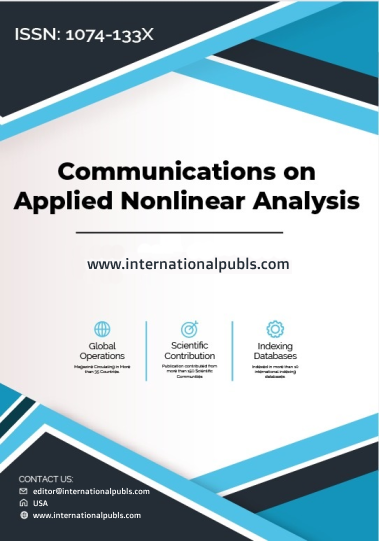Deep Learning for Non-Linear Black-Scholes Model in an Illiquid Financial Market with Transaction Costs
Main Article Content
Abstract
A topic of interest in financial mathematics is the Black-Scholes model. However, the underlying asset price in the stock market may not be satisfied by this linear model, which was developed under a number of assumptions, including liquidity and the absence of transaction costs. The linear model has restricted its precision in actual market conditions. We study the transaction cost model for modelling illiquid markets from the extended nonlinear Black-Scholes model. Using a semi-discretization finite difference approach, the nonlinear partial differential equation is transformed into a nonlinear ordinary differential equation. Deep Learning (DL) is an advanced technique of machine learning solves the converted ordinary differential equation by fully connected neural network (FCNN). By modelling the complex and nonlinear relationships among market variables, DL models can generate option pricing forecasts that are more dependable and precise, not just for continuous data but also for discontinuous data (at jump point).
Introduction: Nonlinear partial differential equation plays a crucial role in financial modelling, especially in the pricing of derivatives like options. The Black- Scholes model, introduced in 1973, continues to be one of the most widely used frameworks for pricing European options. However, this model is a linear one and offers an analytical solution, yet it is not appropriate for the complexities of real market assumptions that exhibit nonlinear effects. We examine the transaction cost model for modelling illiquid markets from the extended nonlinear Black-Scholes model created by Seelama et al. (2021). First using a semi-discretization finite difference approach, the nonlinear partial differential equation is transformed into a nonlinear ordinary differential equation. Solves the converted ordinary differential equation by Deep Learning (DL) based fully connected neural network (FCNN) algorithm. This algorithm is capable of handling the nonlinear behaviour of model and produce more accurate option value for European call.
Objectives: Find the solution of more realistic nonlinear model of Black-Scholes equation include transaction cost in illiquid market with deep learning algorithm for a European call option.
Methods: From extended nonlinear Black-Scholes model, the nonlinear model of transaction cost in illiquid market is considered for study. The nonlinear partial differential equation is converted into a nonlinear ordinary differential equation by semi-discretization finite difference method. DL is a sophisticated machine learning technique that solves transformed ordinary differential equations using fully connected neural network (FCNN) algorithm. DL algorithm uses a Python program.
Results: For European call option, option values are predicted for different number of neurons with different loss functions like MSE and MAE at the time of maturity. Graphical representation shows the accuracy of the algorithm at continuous as well as at jump point (strike price).
Conclusions: The method of solving a complex nonlinear partial differential equation by transforming it into a nonlinear ordinary differential equation is valuable. More precise pricing estimates for option values with nonlinear effects in financial data could be improved by deep learning.
